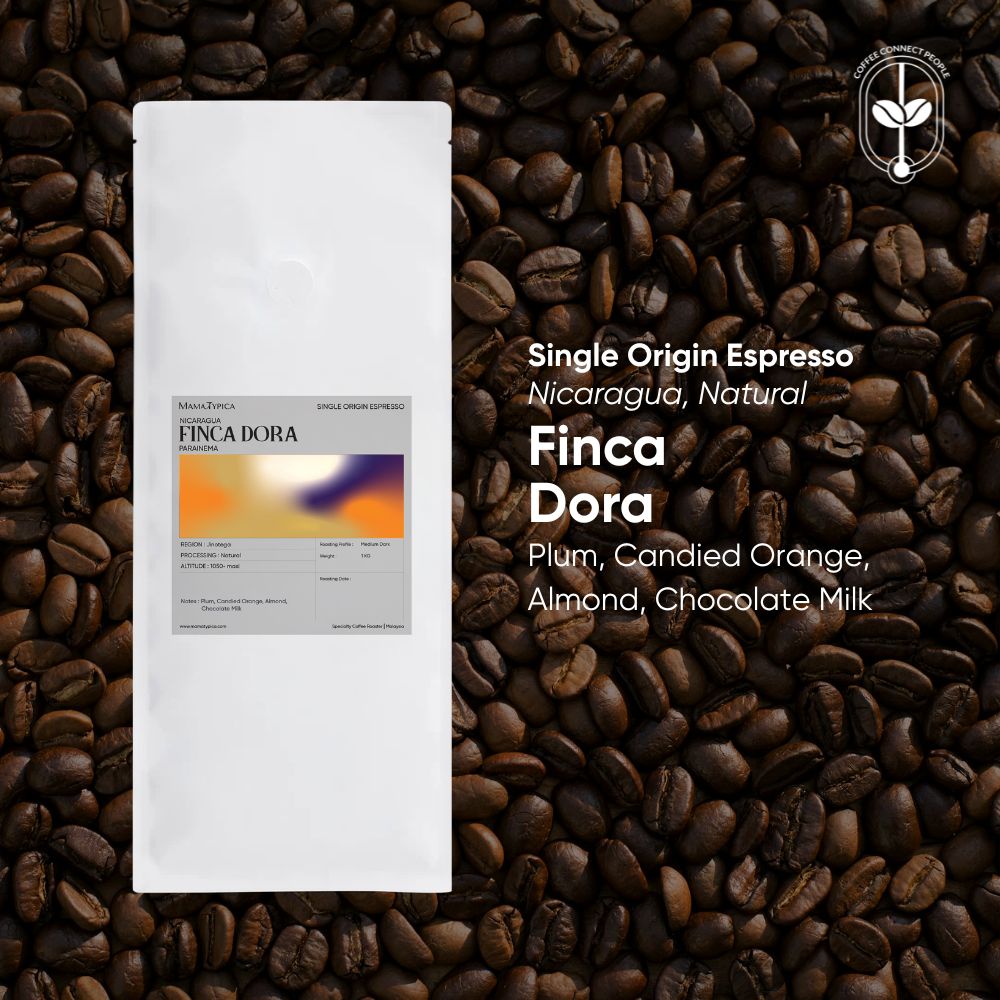Mama Typica Specialty Coffee Roaster
Nicaragua, Finca Dora Parainema Natural
Nicaragua, Finca Dora Parainema Natural
Couldn't load pickup availability
Description
Origin: Nicaragua
Region: Jinotega
Process: Natural
Varietal: Parainema
Altitude: 1,050 M.A.S.L
Notes: Plum, Candied Orange, Almond Chocolate Milk
---
Mama's Notes
Nicaragua’s rich volcanic soils and diverse microclimates have made it a key coffee-producing region since the 1800s, despite setbacks from political unrest, civil war, and natural disasters like Hurricane Mitch. Cooperatives such as CAFENICA helped small producers rebuild, and today, coffee sustains nearly 45,000 families and makes up 8% of the country’s exports, with 95% grown under shade to support biodiversity. Finca Dora, a farm in Jinotega owned by Daniel Nuñez for 35 years, exemplifies this resilience. Operating within an agroforestry system, the farm promotes sustainability while ensuring high-quality coffee. During harvest, Daniel and his team handpick cherries and transport them to the Sajonia Estate dry mill, where they undergo a careful drying process—sun-dried for eight hours, then moved to shaded beds for 28–30 days before hulling and export. Despite labor shortages due to migration, Daniel prioritizes fair wages and local employment, sustaining both his farm and community.
---
Brewing Guide
Brew Type: Espresso
Dose: 20g
Yield: 20 - 25g
Brew Time: 25 - 35s
---
Brew Type: V60 Filter
Dose: 16g
Yield: Blooming 30g for 30sec , total yield of 240g
Brew Ratio: 1:16
Brew Time: 2mins30sec - 3mins
Water Temperature: 93 degrees
We normally use a 5oz cup, double-shot espresso for all our coffees.
*for best results, use un-homogenized/fresh milk
---
100% Arabica
100% Natural Coffee Bean
Shipping & Returns
Shipping & Returns
Share











